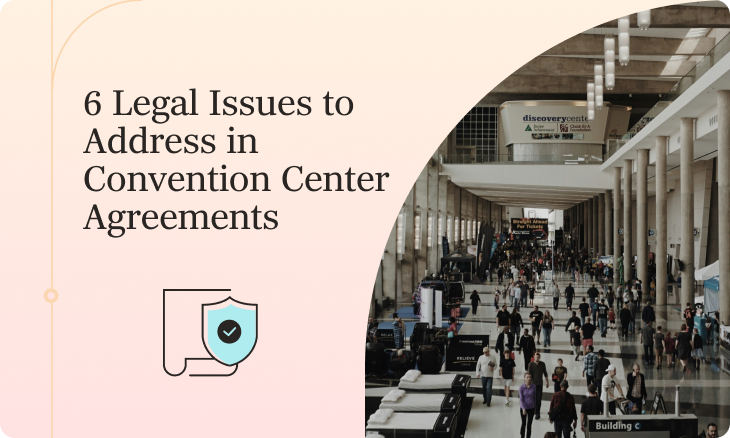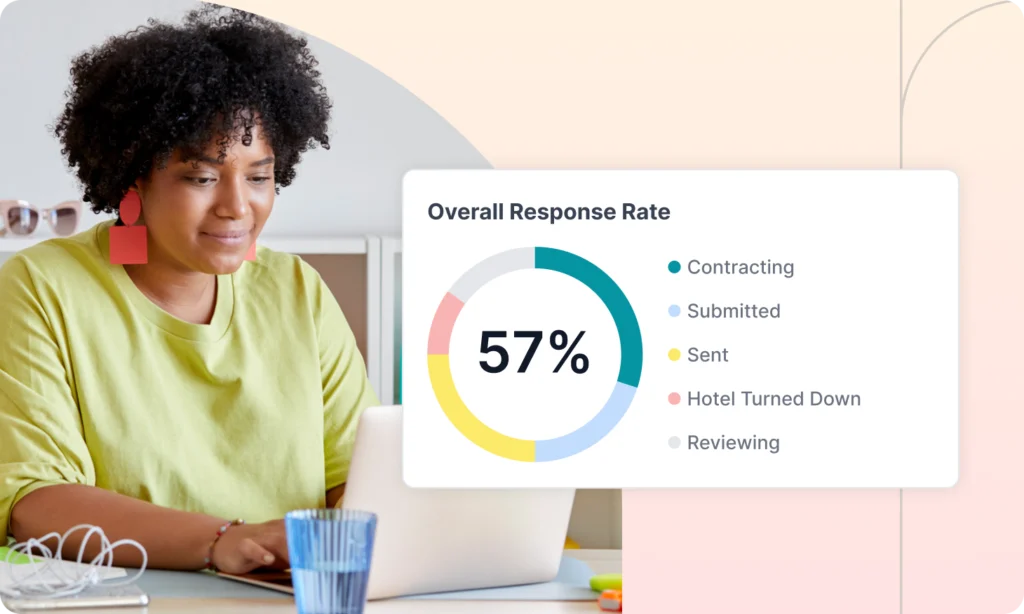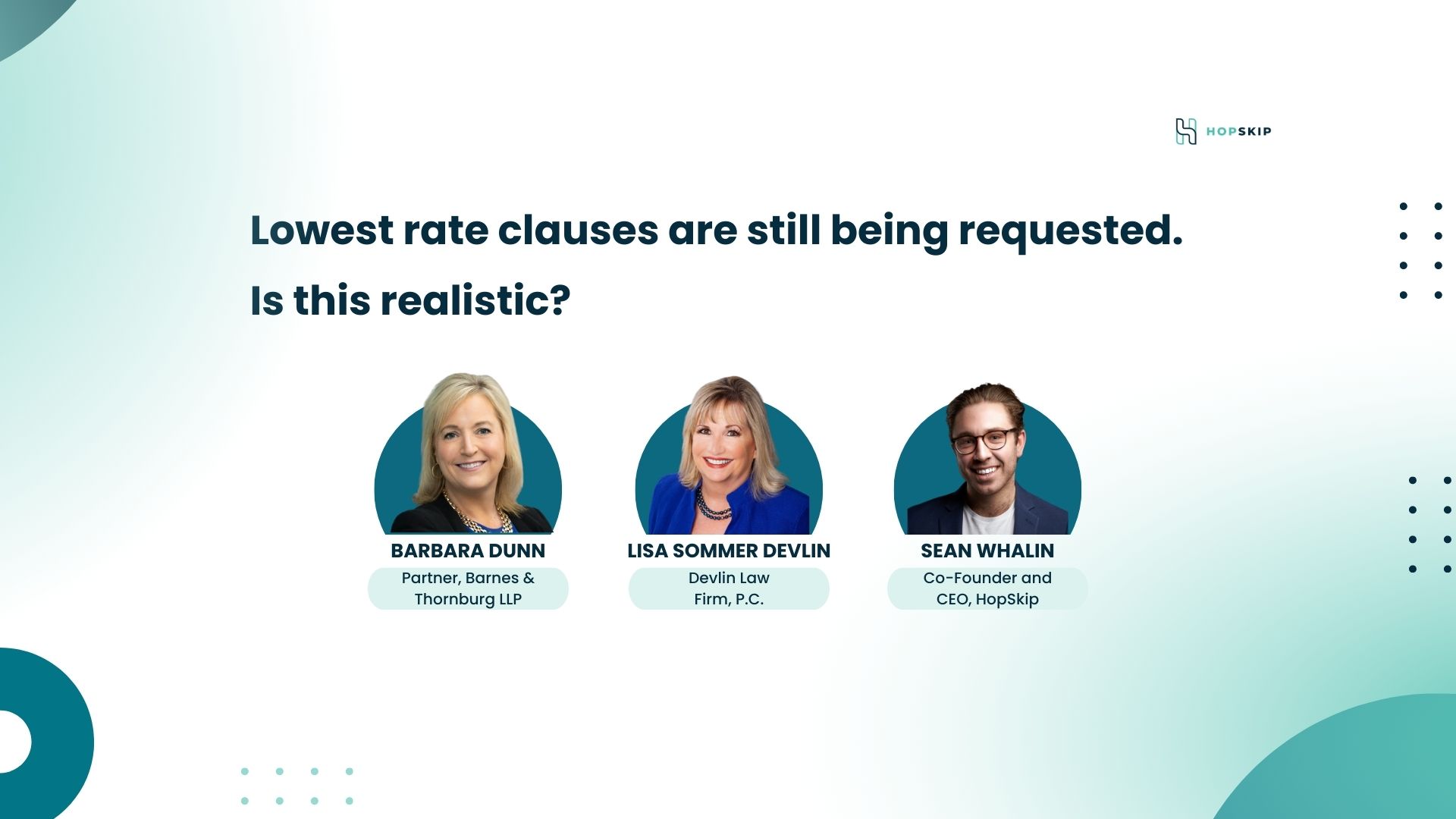
This is a guest post by Barbara Dunn, Attorney & Meeting Industry Expert. This article shall not be considered legal advice. Readers are advised to consult their legal counsel.
With the continued growth in the size and scope of conferences and trade shows and the trend for organizations to host their conferences and trade shows together, many planners may be finding themselves for the first time having to work with a convention center as a venue rather than holding the conference or trade show at a hotel.
Convention center license agreements are not often “user-friendly” documents to review. Many are quite lengthy and vary from one another.
As most convention centers are owned by governmental or quasi-governmental entities, such as cities, additional constraints, and regulations exist when negotiating such agreements.
While there are a myriad of legal issues surrounding convention center license agreements, the following are my top 6 legal issues to address in convention center license agreements:
1. Confirmation of Space, Dates, Times, and Rates
License agreements should include a detailed summary of the space to be utilized by the organization, including the room names, dates, and times from move-in through move-out. It is important to note that the center may not reassign any of the contracted space without the organization’s prior written consent.
Further, the agreement should also detail the rates for such space. Some centers offer flat fee rates, while others base rates on total square footage. Most offer discounts based on food and beverage expenditures (see 2 below). If the rates are based on total square footage, it is typical to exclude office space and other non-revenue-generating space from such calculations.
2. Exclusive Services
Planners should carefully review which services are exclusive to the center—meaning that those services may only be provided by the center’s vendors. Often, these are safety-related services such as rigging, electrical, and plumbing, but they can also expand into non-safety services such as food and beverage, business center services, computer rentals, and floral.
Planners may find success in negotiating out of exclusives for non-safety services. Note that the organization will need to enter into separate contracts with each vendor. Getting copies of those contracts before signing the convention center license agreement is often helpful.
The Essential Hotel Contract Guide for Event Planners
3. Food and Beverage Minimum/Discounts
Most convention centers offer license fees discounts based on the total amount of food and beverage expenditures, which is an incentive to host food and beverage events at the convention center rather than the hotels.
These provisions are often not clearly written, so planners should take extra care to ensure they fully understand them.
Also, if the group will have sponsors or affiliate groups (“ICWs”) holding food and beverage events at the center, it is important to ensure that any revenue generated by the ICWs is credited toward the group’s total food and beverage expenditure.
4. Insurance
License agreements often contain very detailed insurance requirements that are much different from those required by hotels.
It is important to provide the organization’s insurance broker with a copy of such requirements before the contract is signed to confirm that the organization can meet the requirements.
If not, the organization can try to negotiate changes to these requirements before the contract is signed.
5. Indemnification
While many planners are accustomed to mutual indemnification clauses in hotel contracts, mutual indemnification provisions in convention center license agreements are a rarity.
Often, the centers are restricted from indemnifying the organization due to state or local laws because a governmental or quasi-governmental entity owns the center. Having said that, it is important to always ask that the indemnification clause be made mutual as more and more centers are offering some level of mutual indemnification. Also, it is critical that the organization’s attorney review the indemnification provision, which obligates the organization to indemnify the center.
There are many tricks and traps in such provisions that are important to identify and try to revise, such as “sole” indemnification.
6. Rights of Cancellation
Just as with hotel contracts, there are many reasons why an organization would need to cancel the license agreement.
One reason may be for business reasons – in other words, the organization decides not to host the event. License agreements typically include a sliding scale cancellation fee provision similar to those in hotel contracts. Often, there is no provision that the center re-license the canceled space and, if it does, credit back cancellation fees to the organization, so it is important to ask for such a provision.
It is also important to include the instances in which the organization would need to cancel the license agreement without liability, including force majeure, construction, labor disputes, or unavailability of headquarters hotel(s).
For force majeure, the provision is often one-sided, meaning it only applies if something happens to the convention center—not if the organization or its attendees cannot travel to or use the center. Thus, the provision needs to be mutual and should include a reference to performance being “commercially impracticable” in addition to (or in lieu of) being impossible or illegal.
It is also critical to include a construction clause that requires the center to notify the organization of any planned construction and its plans to ensure there will be no impact on the organization’s meeting. If the parties cannot agree on such plans, the organization should have the right to terminate the license agreement without liability.
Other rights to cancel without liability to address in the license agreement include strikes or labor disputes at the center and the unavailability of the organization’s headquarter hotel(s).
Just as every hotel contract may differ, convention center license agreements are much the same and require careful review by the organization and its legal counsel.
One final note: Many convention centers have very detailed policies and procedures or guidelines for using the building. It is important for the organization to review those along with its decorator to ensure there are no concerns that would impact the conference or trade show.
As always, be careful out there!

Barbara Dunn is a lawyer and trusted advisor to meeting professionals. With more than three decades of experience, Barbara helps her clients navigate negotiations and finalize effective contracts for their meetings and events. Barbara is the owner of her own law practice, Barbara Dunn Law PLLC, following her tenure as a capital partner at the law firm of Barnes & Thornburg. Barbara can be reached at barbara@barbaradunnlaw.com











